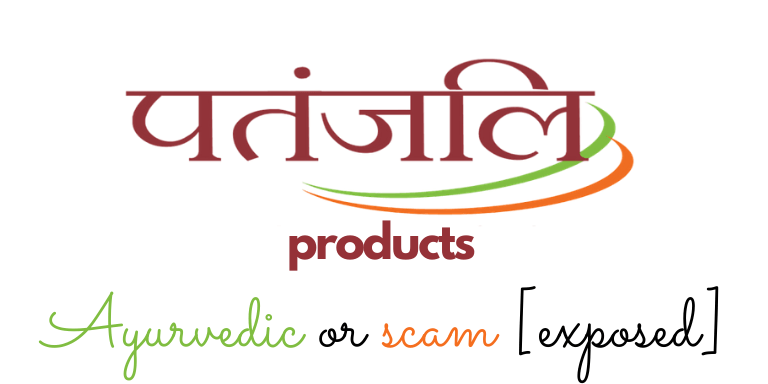Patanjali founded by Acharya Balakrishna and promoted by Baba Ramdev has taken the FMCG market by storm.
From food products to cosmetics, to other personal care products they have more than 900 products in the market.
Let’s clear the air a bit. Patanjali is a marketing company which outsources its manufacturing to another improved party to its manufacturer and then sells products in the market under its brand name Patanjali.
Patanjali is the fastest growing FMCG market in India with their total valuation of over 30 billion rupees.
Since its inception, people have gone crazy upon Patanjali products, because their products are sold under the umbrella of Ayurveda.
For this article, I have picked up 5 products manufactured under the name of Patanjali, which are very commonly used in Indian homes.
We will go through each product one by one and find out if they’re really worth the grace.
Before we move further I want to make this clear that I’m not with or against Patanjali. Or any other brand for that matter. I buy a product on its merit. I look at the nutritional information and the ingredients. And if I feel that this product is good for me, I buy it. Then it doesn’t matter if it’s made by Patanjali or any other brand.
Having said this, let’s get started.
Let us start with one of the best products of Patanjali.
Dant Kanti Toothpaste
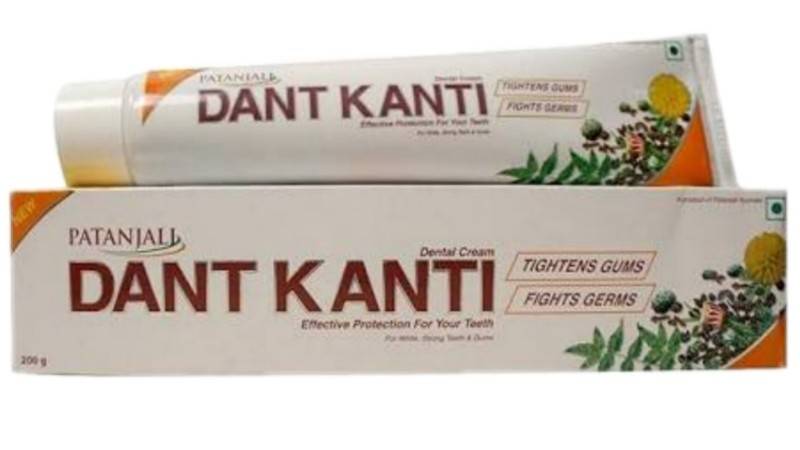
Within a span of 2 years, Dantkanti toothpaste has become a household name in India. From children to old age it is popular among all.
It is being promoted as Ayurvedic medicine and oral health which contains a lot of ingredients. The base material is, however, is made from calcium carbonate, sodium benzoate and other preservatives.
Patanjali has not clearly mentioned what preservatives are added in it. However, the main point of contention is that it has fluoride in it. Yes just like commercial toothpaste in the market, Patanjali’s ayurvedic toothpaste also has fluoride in it.
Fluoride even though is a permissible limit but because it has been promoted as an ayurvedic medicine it is disappointing. Fluoride is added in toothpaste because it is said to prevent tooth decay.
Ayurveda, however, has never recommended it for oral health.
Moreover, fluoride has never been proven to significantly aid in protecting the teeth from the development of cavities. Fluoride is one of the most toxic substances known to men.
It has many side-effects, some of them are also fatal. It is dangerous especially for children because they swallow a large amount of toothpaste that they put in their mouth.
This is the reason that packing clearly mentions children below 7 years of age as advised by physician dentist not to be swallowed. I would suggest you not allow your children to use this toothpaste.
It’s not that it is not possible to make toothpaste without fluoride or that there is no fluoride toothpaste in the market it’s just that Patanjali has chosen to fluoridate.
Patanjali’s Dant Kanti toothpaste may be better than the other commercial toothpaste but as per the ayurvedic standards, it’s not up to the mark.
Patanjali Oats
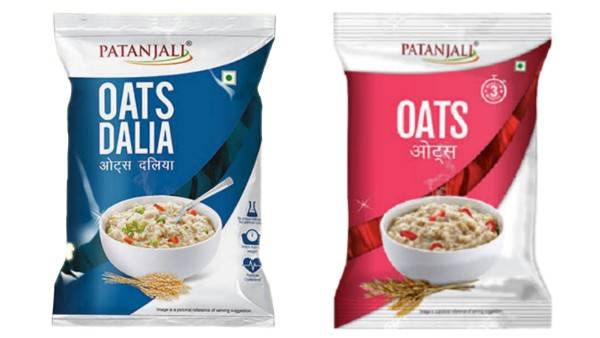
Patanjali has stepped into making products which were not even traditionally used in India. Oats is a perfect example.
Oats are an excellent source of complex carbohydrates. They go slowly in the system and provide energy for a longer period of time. They are very rich in fibre because of it they help in digestion and fat loss.
There are many brands of oats which are available in the Indian market. But here we’ll talk about Patanjali oats.
So if you see its ingredients list it has only one ingredient that is oats. There is no added sugar, no unwanted additives, no preservatives.
Perfect, coming to the nutritional information, 100 grams of Patanjali oats will provide you 411 calorie, 12.1 grams of protein, 66.9 grams of carbohydrates, 10 gm of fibre and 10.5 grams of fat. Which looks good.
Now for a moment let us compare it with another brand of oat, which has become very popular in the Indian market. Quikr Oats.
If we look at Quikr oats, it also has only ingredients in them, and that is oats.
Comparing the nutritional information both are similar. However, Patanjali oats are slightly better as they are higher in protein content, and lower in carbohydrate content.
Moreover, Patanjali oats are cheaper than Quikr oats and the best part is that Patanjali oats are made in India whereas Quikr oats are not.
So I will prefer Patanjali oats over Quikr oats. Oats can be a part of your daily diet no matter what your fitness goal is.
The only thing that you should consider is its serving size. If your goal is to lose fat, then have 40 grams of oats in one serving. And if you have to gain muscle have 60-70 grams of oats in one serving. Never buy masala oats from the market.
You can easily make masala oats at home with natural oats. Here you can make your own masala oats at home.
Patanjali Chyawanprash
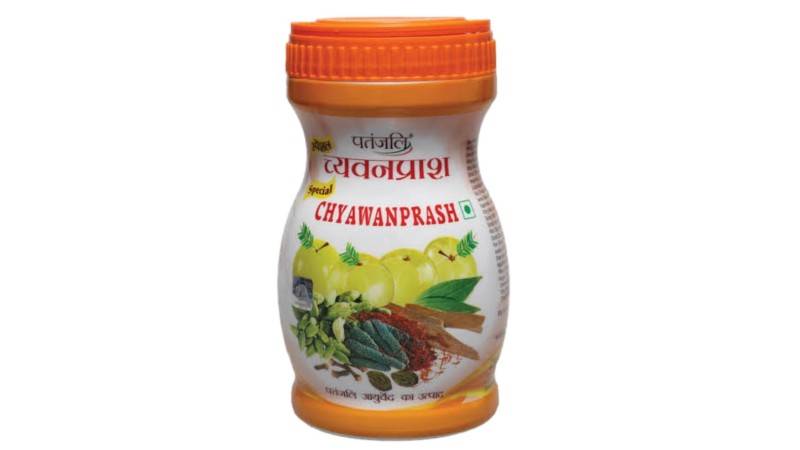
Chyawanprash is one of the most common dietary supplements used in Indian homes especially in winter.
Chyawanprash is a cooked mixture of over 40+ herbs and spices. Authentic Chyawanprash is prepared as per the instruction suggested in Ayurvedic text.
As per Rigveda the name Chyawanprash comes from Maharshi Chyawan. Chyawanprash is a powerful antioxidant.
Among all its ingredients, the major ingredients are Amla or the Indian gooseberry. Because the amla is very high in Vitamin C it helps in boosting the immune system. The amount of Vitamin C in one Amla is equal to 20 oranges. Apart from boosting immunity, it has many other health benefits.
Let us compare Patanjali Chyawanprash with their arch-rival Dabur Chyawanprash.
Where Patanjali Chyawanprash has a grainy texture, Dabur Chyawanprash, on the other hand, has a smooth texture. Both of these popular brands have the same herbal ingredients.
According to Ayurveda the expiry date of the Chyawanprash is 6 months. However, nowadays companies add preservatives in Chyawanprash which increases the expiry to three years.
The nutritional information is missing on both the jars. However one thing which had my attention is the warning which has been specially mentioned in the Patanjali Chyawanprash. It says not to be consumed by Diabetic patients.
When I tried to find more about that on the internet. I found 10 grams of Patanjali Chyawanprash has 5.82 grams of sugar, whereas the same amount of Dabur Chyawanprash has only 2.82 grams of sugar.
No wonder you can feel the extra sweetness in Patanjali Chyawanprash when you taste both of them.
This means that in one spoon of Patanjali Chyawanprash you’re having 1½ teaspoons of sugar.
However, Patanjali Chyawanprash is 50 rupees cheaper than the Dabur Chyawanprash. Which one do you think is better?
Considering the high amount of sugar present in Patanjali Chyawanprash, I think Dabur Chyawanprash is a better choice.
Patanjali’s Mixed Fruit Jam
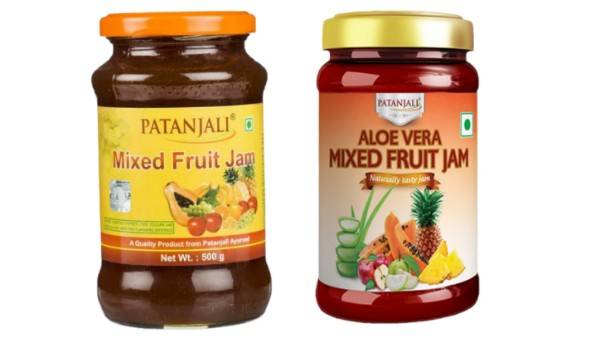
Bread and Jam are one of the most commonly used breakfast recipes in India. It is one of the favourites among the kids. Most fruit jam in the market is loaded with sugar.
Let us see what Patanjali has to offer.
If we see the nutritional information per 100grams of this mixed fruit jam you will get 90 grams of carbohydrates. Out of which 69 gm is plain sugar, no proteins, no fats and not even fibre.
Going through the ingredients which are mentioned in the decreasing order, the top of the list is sugar. This means that the quantities of sugar used in this jam is highest among all the other ingredients. Followed by mixed fruit pulp which is only 45%. Carmoisine in the ingredient list is a synthetic food colour which is a suspected carcinogen. At again in the bottle says “Not suitable For Diabetic Patients”
It is obvious considering the amount of sugar present in it.
For only one serving of Patanjali’s fruit jam, you’re getting 14grams of sugar. That is 3½ teaspoons of sugar. Sugar is nothing but empty calories. It has nothing in the name of nutrition.
On the contrary, it is addictive and it damages the system from within.
This mixed fruit is nothing but sugar candy and sugar candy is meant to be consumed in moderation.
If you’re eating this jam on a daily basis thinking that you were eating fruits, you’re mistaken.
Avoid consuming this jam and serve your kid a balanced breakfast.
Patanjali’s Whole Wheat Digestive Cookies
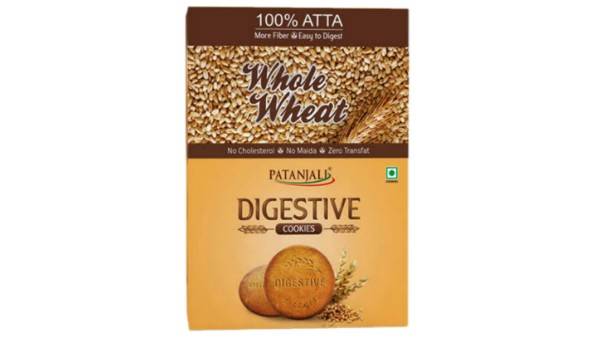
Tea and Biscuits is one of the favourite snacks among adults in India. And when the company promises whole wheat cookies it is even better.
Let us compare Patanjali’s Whole Wheat Digestive Cookies with Britannia’s NutriChoice Five grain Digestive Cookies.
If we compare ingredients list, Patanjali’s Digestive cookies are made of whole wheat and other grains. Whereas Brittania’s nutri choice cookies are made from 45% refined wheat flour. This clearly reflects nutritional information where Patanjali Cookies have significantly higher amount of fibre as compared to Brittania’s.
Also the amount of carbohydrates and sugar is lower in Patanjali Cookies. On top of it Patanjali’s cookies are cheaper than that of Brittania’s cookies. Although both cost 50 rupees but patanjali is giving you 250 grams while Britannia is giving you 200 grams.
So Patanjali’s Whole wheat digestive biscuit is a clear winner. But make sure you do not over eat them because they also have added sugars, artificial flavours and preservatives.
Two Biscuits per serving is good enough.
So that’s all, as you saw there are some products by Patanjali which are really good, and there are others which are not.
I would suggest you to not buy a product just by looking at its brand, but the nutritional information and ingredients.
Let me know by commenting below, what’s your opinion on Patanjali’s products.
Also share it with anyone if you found this article helpful.
